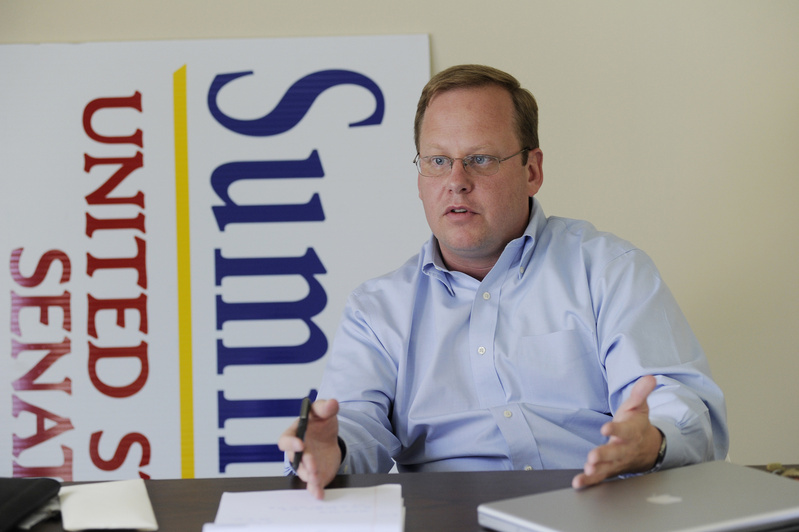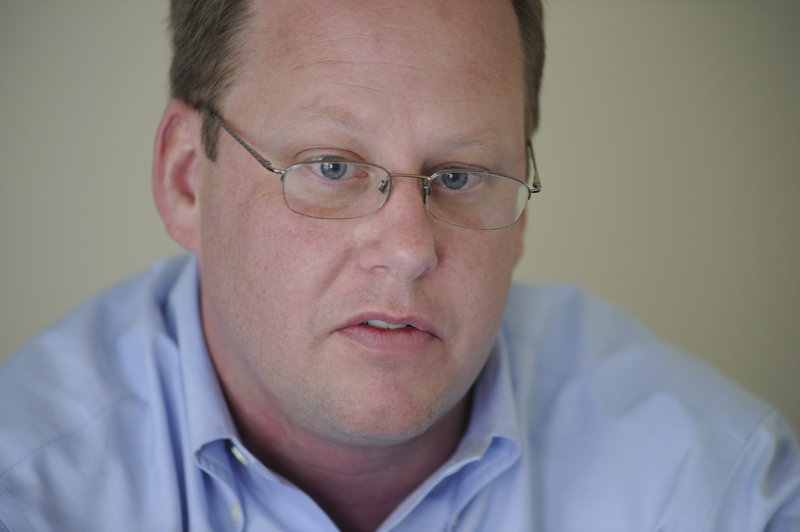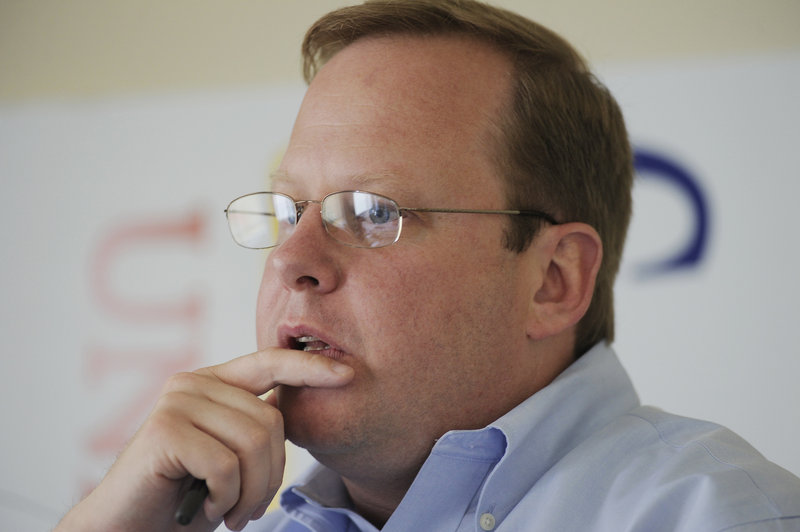Few states would offer the chance for the rapid political career ascension that Lance Dutson has experienced in Maine.
It wasn’t long ago that Dutson was well outside the Maine political world and light years from his current job, the campaign manager for Charlie Summers, Republican candidate for the U.S. Senate.
In 2006, he was immersed in the world of search engine optimization, which he used to increase exposure for his clients in the tourism business. That’s when Dutson’s interests ran square into those of the Maine Office of Tourism and its out-of-state ad agency.
Dutson used his blog, Maine Web Report, to fight what he deemed as impropriety or incompetence at the state agency. His dogged and sharply-written critiques led the tourism office’s ad agency to sue him.
The firm eventually dropped the suit. Dutson, whose efforts had been championed in conservative circles and the blogging world, became something of a folk hero for taking on a government entity.
Dutson says the experience also afforded him a peek inside the inner workings of Maine politics. The door opened further in 2007 when he joined Republican U.S. Sen. Susan Collins’ re-election campaign as the new media director. He later helped the campaign to elect former N.H. Republican Attorney General Kelly Ayotte to the U.S. Senate. In 2010 he became communications director for the Maine Republican Party and briefly held a similar role for House Speaker Robert Nutting, R-Oakland, after the GOP rode the election wave to power.
Last summer Dutson took the reins of the Maine Heritage Policy Center, the state’s most influential conservative advocacy group. Dutson quickly put his stamp on the policy center when he launched The Maine Wire, a news service based on a model developed by conservative activist Andrew Breitbart and, in many ways, reminiscent of Dutson’s Maine Web Report.
Now Dutson is running his first political campaign. He sat down with the Portland Press Herald for a few minutes to talk about his recent career move and Summers’ chances of winning.
Q: Can you talk a little bit about your start in Maine politics?
A: Without recounting that whole (Maine Tourism Office) story: I ended up having a strange step into the political world by seeing how easy it was, especially in Maine, to step out and really take a stand on something. Maine people really pay attention. That’s one of the greatest thing about this state. Someone working in the political world of New York State or California, or something like that, would have more … gatekeepers in the way of actually being able to impact issues. In Maine, I figured that all you need to do is start a blog, be a little sarcastic, stick to your guns and you can become a voice.
Q: Were you political before your blog and the run-in with the Maine Tourism Office?
A: I’ve always been interested in politics since I was a kid, but I’d never been engaged in the political process. I was just kind of an armchair quarterback and just watched “Meet the Press.” My dad used to make fun of me because I’d watch “The McLaughlin Group” when I was like 12 or something like that.
I was interested in politics in school from a historical perspective. I like writing and the whole communications field, writing for impact. The blogging thing was kind of like that.
Q: It seems like quite a career trajectory in a short period of time.
A: It has been. I mean, leaving MHPC to come here was a tough decision. MHPC is a great organization and they’ll be a greater organization going forward. But you don’t often have the opportunity to impact the course of the country — not that my day-to-day stuff is going to do that directly — but the outcome of the race could swing the balance of power in the U.S. Senate. If this thing splits and Maine elects or holds this Republican seat, that’s an amazing opportunity to have.
Q: This is your first time running a campaign. Have you received any outside help?
A: Sen. Collins’ team has been extremely helpful to us so far. Political campaign people are kind of like carnies, we all float around every two years. So there’s kind of a confederacy of background people that create a knowledge base and support structure.
Q: Can you talk about some of the responsibilities you have?
A: There’s just so many factors. Today there will decisions made about who sits in a fire truck in the Moxie Day Parade … where the helium is for the balloons, what we’re going to say in response to press inquiries. Hiring decisions, budget decisions, fundraising decisions.
The key part of it is getting good people around you. It’s hard to judge money in a race that’s four months long, but we’ll end up with about $1 million in expenditures out of this office in 118 days. It’s like building a big company that disappears on Election Day.
Q: You mentioned that Angus King’s lead is based largely on his popularity and name recognition. What opportunities does that leave the campaign to close that gap?
A: I think people tend to picture Angus King as a former governor during times when the economy was better is the residual memory that people have of him. The opportunity for us here is to press the discussion of actual issues and the steps that are needed to get the economy back on track.
So far we’ve heard Angus talk about filibuster reform and the idiosyncrasies of Senate and government procedure, but I have yet to hear anything from him about how him being in the U.S. Senate is going to improve the lives of the average Mainer.
… That’s the opportunity that we have. So far we’ve seen very broad support for Angus, but very thin support as well. Once we get down to those issues I think that’s an opportunity for us.
Q: (Summers’) primary campaign seemed to be pretty positive in tone. Does that have to change in order to chip away at King’s popularity?
A: I don’t think so. We’re intending to keep the positive campaign going. I think the natural contrast that always has to happen during an election between opponents comes in the vetting of the issues.
When we start talking about specific steps about getting people back to work, Angus is going to have to engage on that. That’s not a symptom of negative campaigning or attacking, it’s just going to be a contrast.
Q: This new job seems like it could be a great opportunity for you personally, especially if the campaign can win in November, or even just close gap.
A: Yeah, it’s an uphill battle, but it’s one of those things where the journey and destination are both really important. Politics is like playing a board game sometimes. The pace of it.
There’s kind of a Special Forces feeling you get sometimes when you’re sitting in a crappy office like this, you know, with the things piled up everywhere, but also having the work be more meaningful than your surroundings.
State House Writer Steve Mistler can be contacted at 791-6345 or at:
smistler@pressherald.com
Twitter: stevemistler
Send questions/comments to the editors.




